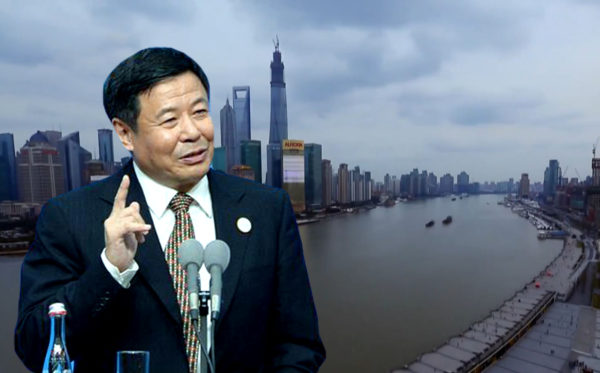On Nov. 10, vice finance minister Zhu Guangyao announced that China would remove foreign ownership limits on banks while permitting overseas companies to hold majority stakes in local banks, securities, futures, asset management and insurance.
Zhu’s announcement coincided with President Donald Trump’s first state visit to China, and came a day after Trump called for greater market access for American companies in a speech.
The details:
- Foreign firms can now own 51 percent stakes in joint ventures with Chinese securities, fund management, and futures companies. This cap will be removed three years after the new regulations take effect.
- China will remove the 20 percent cap on ownership of a Chinese asset management company or commercial bank by a single foreign investor, as well as the 25 percent cap on total foreign ownership of such businesses.
- The cap on foreign stakes in life insurance joint ventures will be raised to 51 percent in three years and will be entirely removed in five years.
Why it matters: Foreign firms should gradually be able to control Chinese banks and other financial companies over a period of five years.
Our take:
1. The opening up China’s financial sector to foreign investment may make up for massive capital outflows in recent years.
- According to China’s balance of payments statistics for 2015 to 2016, its capital outflows reached $1.28 trillion (non-reserve financial account balance plus errors and omissions financial account). China’s average net outflow of capital is equivalent to 6 percent of its GDP.
- In January, China’s foreign exchange reserve fell below $3 trillion for the first time in about six years, and only rallied to $3.1 trillion in September. The rally was the result of Beijing’s efforts to restrict Chinese overseas investments by about 50 percent and get companies who make large-scale investments overseas to sell their foreign assets.
- After the 2008 financial crisis, foreign investors began selling all their stock holdings in state-owned banks. The closeout affected small and medium banks starting in 2016.
2. External pressure could weaken the entrenched political forces’ control over China’s financial sector and allow Xi to advance economic reforms.
- The 18th Central Committee of the Chinese Communist Party (CCP) decided during its third plenum in 2013 that markets would play a “decisive role” in China’s economy. Premier Li Keqiang even promoted the idea of setting up free-trade zones to open up the economy and push through financial reform.
- Over the past five years, however, Xi and Li have made little headway towards reforming China’s economy due to severe interference from Jiang Zemin’s faction and Party princelings in the financial sector. Xi was limited to arresting the troublemakers via his anti-corruption campaign and installing trusted officials in key posts, a crucial process which allowed him to control the outcome of the 19th Party Congress personnel reshuffle.
- After securing many top positions for his allies at the 19th Congress, Xi is finally able to focus his attention on cleaning up corruption in the financial sector to pave the way for economic reform.
3. Opening up China’s financial sector could prove to be a double-edged sword.
- Foreign capital might move to China, but it might not help to prop up China’s real economy. Capital tends to follow where the money is, and in today’s China, that means economic bubbles like the property market and China’s financial technology and inclusive finance enterprises.
- The 2015 financial crisis is an example of how foreign capital has negatively affected China. Based on our research, Xi’s political opponents collaborated with Chinese regulators, securities, and financial companies, and foreign hedge funds to short China’s A-shares. Between July 2014 to June 2015, A-shares rose from a total market value of 28 trillion yuan to 78 trillion yuan, then lost 20 trillion yuan in value in a month.












